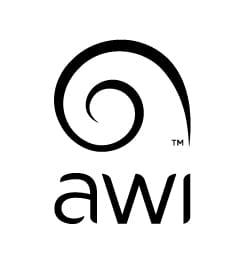 AUSTRALIAN Wool Innovation has released a guide to planning for a non-mulesed Merino enterprise among recent new publications from its breech strike research development and extension program.
AUSTRALIAN Wool Innovation has released a guide to planning for a non-mulesed Merino enterprise among recent new publications from its breech strike research development and extension program.
The Planning for a non-mulesed Merino enterprise report was created after interviews with 40 Merino wool growers from across Australia who have moved to a non-mulesing business.
The 15-page publication was published on the AWI website about three weeks ago and outlines the many detailed and thorough decisions required when considering the move to a non-mulesed wool-growing operation. Planning, sheep type, management changes and financial considerations are all discussed by those who have chosen to take this path.
The report said that while mulesing has been shown to reduce breech strike by 90 percent, 7pc of the Australian Merino clip (less than 24.5 microns) and 14pc of wool finer than 17.5 microns was declared as non-mulesed through AWEX’s National Wool Declaration.
It said increasing numbers of Merino enterprises are moving away from relying on mulesing as their main tool to reduce the risk of breech flystrike, and turning to breeding for low breech wrinkle and dags, increasing reliance on worm and fly control chemicals, additional crutching and accelerated shearing to manage breech flystrike risk.
Apart from addressing the management and financial risks of moving to a non-mulesed flock the report also included a checklist for growers:
- Plan ahead – a more flexible management approach is likely to be required
- Review flock calendar of operations (joining time and length, date of crutching and shearing) and animal health program (Worm and fly control, vaccinations, drench and jet programs) refer to FlyBoss.com.au
- Get all people in the business on board
- Understand how your environment is different to others, consult local growers
- The focus needs to be on improving lifetime welfare and having a continuous animal welfare improvement approach, rather than mulesing itself;
- Reduce wrinkle and increase production using a sheep type well suited to your environment. Consult your genetic advisor or ram supplier;
- Access additional labour;
- Find preferred livestock and wool selling brokers;
- Review all Quality Assurance programs available to you;
- Minimise restocker sheep sale discounts;
- Maximise wool price premiums; and
- Be determined to make it work
Grower quotes highlight diverse non-mulesed pathways
Ninety direct quotes from the wool grower interviews highlighted the diverse experiences and pathways they have taken in their move to a non-mulesed Merino enterprise.
AWI’s manager of genetics and animal welfare advocacy Geoff Lindon said the focus of the document is for wool growers to be talking to wool growers.
“The quotes express the process and the issues these wool growers have encountered in moving to a non-mulesed enterprise.”
Key quotes in the report include:
“The hardest thing was being brave enough to start.”
“I needed to simplify my other enterprises to make the non-mulesed Merino enterprise work.”
“Handlers are good, but more strategically placed holding yards have also helped.”
“Worm capsules were the breakthrough to get lower dags.”
AWI said the publication is a tool for all wool growers to gain insight into the option of transitioning to a non-mulesed enterprise and the considerations that need to be taken in the planning stage. The experience of each interviewee varied greatly and their strategy had to be adaptive for their specific environment and sheep type, AWI said.
AWI said the publication aligns with its continued effort to provide wool growers with accessible industry information on management practices for the welfare of their sheep.
AWI said flystrike remains one of its top research priorities, with more than $35 million invested in initiatives since 2005 and more than $60 million invested in animal welfare programs over the same time.
Other items on the www.wool.com/flystrike latest page include an update on the AWI Breech Strike R&DE program as at November 2017. The presentation by Geoff Lindon outlines the key areas of investment within AWI’s program: breeding and selection, breech modification, improved management, woolgrower and domestic industry extension and international supply chain communication.
Recent Beyond the Bale articles on pain relief are also listed. A March 2017 article explains the three pain relief products that conform with the National Wool Declaration definition of pain relief; Buccalgesic® a preoperative analgesic buccal paste, Metacam 20® a pre-operative analgesic delivered by sub cutaneous injection and Tri-Solfen® a post-operative topical anaesthetic.
During 2017, the pain relief product Buccalgesic® was approved by the Australian Pesticides and Veterinary Medicines Authority (APVMA) for mulesing as well as castration and tail docking in lambs. Growers are advised to consult their veterinarian for specific advice.
AWI said communication of animal welfare within Australia and internationally with manufacturers, retailers and brands is an essential sector of its management and investment. A podcast outlining the role AWI plays in this and some of the large retail and fashion organisations AWI regularly communicates with can be heard in AWI’s podcast series known as The Yarn. Listen to this particular episode with retailers from the United States here.
The AWI Breech Flystrike Strategy, AWI Breech Flystrike Prevention communication strategy and AWI Flystrike prevention program Report Card are also publicly available for anyone seeking to gain the latest information in this significant area for the Australian wool industry.
Source: AWI.

We at Leader Products still have a warehouse full of breech and tail clips from the cancellation of the surgical ban if anyone is looking to use them again. It conflicted with sales of post-pain relief product was my understanding from AWI.